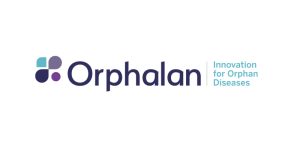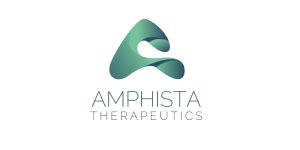Positive Clinical Efficacy Updates of Bel-sar for Early-Stage Choroidal Melanoma from the Ongoing Phase 2 Clinical Trial with Suprachoroidal Administration Presented at AAO 2023
Preliminary Data from Phase 1 Trial in Bladder Cancer – First Patient Utilizing a Single Dose of Bel-sar with Light Activation Demonstrated a Clinical Complete Response
BOSTON–(BUSINESS WIRE)–Nov. 6, 2023– Aura Biosciences, Inc. (NASDAQ: AURA), a clinical-stage biotechnology company developing a novel class of virus-like drug conjugate (VDC) therapies for multiple oncology indications, today announced it has received agreement from the U.S. Food and Drug Administration (FDA) under an SPA for the design and planned analysis of CoMpass, the Company’s global Phase 3 clinical trial of bel-sar for the first-line treatment of adult patients with early-stage choroidal melanoma (CM). The Company also announced the presentation of positive Phase 2 safety and efficacy data of bel-sar with 90% of patients at twelve months of follow-up evaluating two key clinical endpoints: tumor control and visual acuity preservation using suprachoroidal (SC) route of administration for the first-line treatment of adult patients with early-stage CM. The results were presented at the American Academy of Ophthalmology (AAO) 2023 Annual Meeting in San Francisco, California.
“This written agreement from the FDA is consistent with our regulatory strategy and reaffirms that the design and planned analysis of the CoMpass Phase 3 clinical trial, if successful, adequately address the objectives necessary to support a biologics license application submission for bel-sar for the treatment of early-stage CM,” said Dr. Jill Hopkins, Chief Medical Officer and President of R&D of Aura Biosciences. “We are excited with the momentum in the ocular oncology community to participate in what would be the first ever registration-enabling clinical trial for early-stage CM.”
“The Phase 2 data presented today, with 90% of patients at twelve months follow-up, show results that are highly consistent with and strongly support the assumptions for the design of the CoMpass trial. We have observed 80% tumor control and 90% visual acuity preservation for patients that have been treated with the therapeutic regimen of bel-sar and meet the Phase 3 enrollment criteria. The safety profile continues to be favorable with no treatment-related serious adverse events or significant adverse events. This is very encouraging as most of these patients had tumors close to the fovea or optic disk and would have likely experienced severe and irreversible vision loss with the current standard of care with radiotherapy,” said Dr. Carol Shields, Chief of the Ocular Oncology Service at Wills Eye Hospital and Professor of Ophthalmology at Thomas Jefferson University (USA). “We are excited for the possibility to have for the first time a vision preserving therapy, expanding the possibility to treat patients earlier than we do today.”
Agreement from the FDA Under an SPA for the Global Phase 3 CoMpass Trial:
The Company received written agreement from the FDA under an SPA for the design and planned analysis of the Global Phase 3 CoMpass trial indicating concurrence by the FDA with the adequacy of the study, if successful, to address the objectives necessary to support the Company’s planned biologics license application submission. The Phase 3 trial is designed as a superiority trial comparing bel-sar versus sham. The trial is a global, multi-center, masked study, and it is intended to enroll approximately 100 patients randomized 2:1:2 to receive high dose regimen of bel-sar with SC administration, low dose regimen of bel-sar with SC administration, or a sham control. The primary endpoint is time to tumor progression, and the first key secondary endpoint is a composite time to event analysis that will compare the tumor control and visual acuity of the bel-sar high dose regimen to sham when the last patient completes their 15 months of follow up. The trial is powered at greater than 90%. The Company is on track to dose the first patient in Q4 2023.
Updated Safety and Efficacy Data from the Phase 2 Trial with SC Administration
The Phase 2 trial (NCT04417530) is assessing the safety and preliminary efficacy of single- and multiple ascending-doses of bel-sar up to three cycles of treatment via SC administration for the first-line treatment of early-stage CM. A total of 22 adult patients have been enrolled in the trial including the single dose Cohorts 1-3 (n=6) and multiple dose escalation Cohorts 4-6 (n=16). Cohorts 5 and 6 (n=13) received up to three cycles of therapy, which was considered the therapeutic regimen for evaluation. One patient in Cohort 5 (n=3) received two cycles of therapy and two patients in Cohort 5 received three cycles of therapy (40 μg/dose). All patients from Cohort 6 (n=10) were assigned to receive three cycles of therapy at the highest dose (80 μg/dose). One patient from Cohort 6, who discontinued after one cycle due to unrelated serious adverse events (SAEs), is not included in the analysis. All patients in Cohorts 5 and 6 had active tumor growth at study entry, as an enrichment strategy to evaluate preliminary efficacy. This group of patients with active growth treated at the therapeutic regimen of three cycles was evaluated for tumor control, visual acuity preservation and tumor growth rate as the defined clinical endpoints to evaluate preliminary efficacy. The results, with 90% of patients at twelve months of follow-up who received three cycles of therapy in Cohorts 5 and 6, and who match the criteria for the global Phase 3 trial, showed a tumor control rate of 80% (8/10) and the visual acuity preservation rate was 90% (9/10). The majority of patients being at high-risk for vision loss with tumors close to the fovea or optic disk. For the 80% of patients that responded, data showed a statistically significant reduction in tumor growth rate (-0.382 mm/yr, p = <0.0001) compared to each patient’s documented growth rate at study entry. The overall tolerability profile of bel-sar was favorable, with no dose-limiting toxicities, treatment-related SAEs or significant AEs reported as of August 3, 2023. There was no posterior inflammation and only mild anterior inflammation (Grade 1) in ~18% of the patients which was self-limited or resolved with a short course of topical steroids. Treatment-related AEs were predominantly mild and resolved without sequalae. We believe these updated results indicate that bel-sar may offer a targeted, vision preserving therapy for the first-line treatment of primary CM, where 80% of patients are diagnosed at an early stage and have no approved therapies to date.
The presentation can be accessed on the Company’s website here.
Preliminary Data from Phase 1 Trial in Bladder Cancer
The trial has completed enrollment of the cohort that received bel-sar injection without light activation. Protocol mandated safety review found no safety issues and the study has proceeded to the bel-sar injection plus light activation cohorts. Preliminary data from the first patient in the light activated cohort of the trial, utilizing a single dose of bel-sar with light activation, demonstrated a clinical complete response demonstrated by absence of cancer cells on histopathology with evidence of extensive necrosis and immune activation.
Bel-sar is a novel investigational agent designed with a dual mechanism of action that includes targeted cytotoxicity and immune activation. The ongoing Phase 1 multi-center, open-label clinical trial is expected to enroll approximately 19 adult patients. The trial is designed to assess the safety and tolerability of bel-sar as a single agent. The trial will provide histopathological evaluation after the local treatment to assess bel-sar’s biological activity. In addition, the FDA has allowed an amendment to the protocol of the Company’s ongoing Phase 1 trial evaluating bel-sar, allowing the inclusion of adult patients with muscle invasive bladder cancer in addition to non-muscle invasive bladder cancer. The Company expects to provide more data mid-2024.
About Aura Biosciences
Aura Biosciences, Inc. is a clinical-stage biotechnology company developing VDCs, a novel class of therapies, for the treatment of multiple oncology indications. Aura’s lead VDC candidate, belzupacap sarotalocan (bel-sar; AU-011), consists of a virus-like particle conjugated with an anti-cancer agent. Bel-sar is designed to selectively target and destroy cancer cells and activate the immune system with the potential to create long-lasting, anti-tumor immunity. Bel-sar is currently in development for ocular cancers, and Aura has initiated activities for the global Phase 3 trial evaluating first-line treatment of early-stage choroidal melanoma, a vision- and life-threatening form of eye cancer where the standard of care with radiotherapy leaves patients with severe comorbidities, including significant vision loss. Aura plans to pursue development of bel-sar across its ocular oncology franchise including for the treatment of patients with choroidal metastasis. In addition, leveraging Aura’s technology platform, Aura is developing bel-sar more broadly across multiple cancers, including in patients with non-muscle invasive and muscle invasive bladder cancer. Aura is headquartered in Boston, MA.
For more information, visit aurabiosciences.com, or follow us on Twitter and LinkedIn
Forward-Looking Statements
This press release contains forward-looking statements within the meaning of the Private Securities Litigation Reform Act of 1995, as amended, and other federal securities laws. Any statements that are not statements of historical fact may be deemed to be forward looking statements. Words such as “may,” “will,” “could”, “should,” “expects,” “intends,” “plans,” “anticipates,” “believes,” “estimates,” “predicts,” “projects,” “seeks,” “endeavor,” “potential,” “continue” or the negative of such words or other similar expressions that can be used to identify forward-looking statements. These forward looking statements include express or implied statements regarding Aura’s future expectations, plans and prospects, including, without limitation, statements regarding the therapeutic potential of bel-sar for the treatment of cancers including choroidal melanoma, muscle invasive bladder cancer, non-muscle invasive bladder cancer and choroidal metastasis; any express or implied statements regarding the Company’s expectations for the Phase 2 and Phase 3 clinical trials of bel-sar for early-stage choroidal melanoma and the Phase 1 trial of bel-sar for muscle invasive bladder cancer and non-muscle invasive bladder cancer; and the potential approvability of bel-sar; the Phase 2 trial of bel-sar for choroidal metastasis.
The forward-looking statements in this press release are neither promises nor guarantees, and investors should not place undue reliance on these forward-looking statements because they involve known and unknown risks, uncertainties, and other factors, many of which are beyond Aura’s control and which could cause actual results to differ materially from those expressed or implied by these forward-looking statements, including, without limitation, uncertainties inherent in clinical trials and in the availability and timing of data from ongoing clinical trials; the expected timing for submissions for regulatory approval or review by governmental authorities; the risk that the results of Aura’s clinical trials may not be predictive of future results in connection with future clinical trials; the risk that interim data from ongoing clinical trials may not be predictive of final data from completed clinical trials; the risk that governmental authorities may disagree with Aura’s clinical trial designs, even where Aura has obtained agreement with governmental authorities on the design of such trials, such as the Phase 3 SPA agreement with FDA; whether Aura will receive regulatory approvals to conduct trials or to market products; whether Aura’s cash resources will be sufficient to fund its foreseeable and unforeseeable operating expenses and capital expenditure requirements; Aura’s ongoing and planned preclinical activities; and Aura’s ability to initiate, enroll, conduct or complete ongoing and planned clinical trials. These risks, uncertainties, and other factors include those risks and uncertainties described under the heading “Risk Factors” in Aura’s most recent Annual Report on Form 10-K and Quarterly Report on Form 10-Q filed with the U.S. Securities and Exchange Commission (SEC) and in subsequent filings made by Aura with the SEC, which are available on the SEC’s website at www.sec.gov. Except as required by law, Aura disclaims any intention or responsibility for updating or revising any forward-looking statements contained in this press release in the event of new information, future developments or otherwise. These forward-looking statements are based on Aura’s current expectations and speak only as of the date hereof and no representations or warranties (express or implied) are made about the accuracy of any such forward-looking statements.
ACTIVE/125869873.9

View source version on businesswire.com: https://www.businesswire.com/news/home/20231106636146/en/
Investor and Media Contact:
Alex Dasalla
Head of Investor Relations and Corporate Communications
adasalla@aurabiosciences.com









